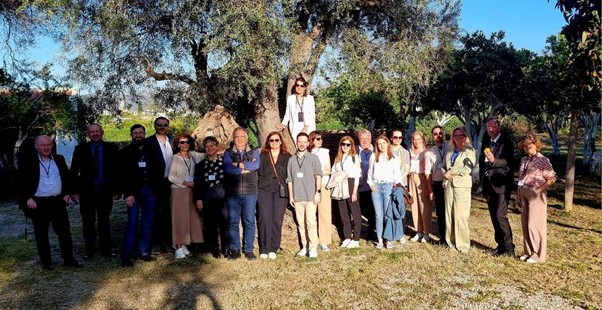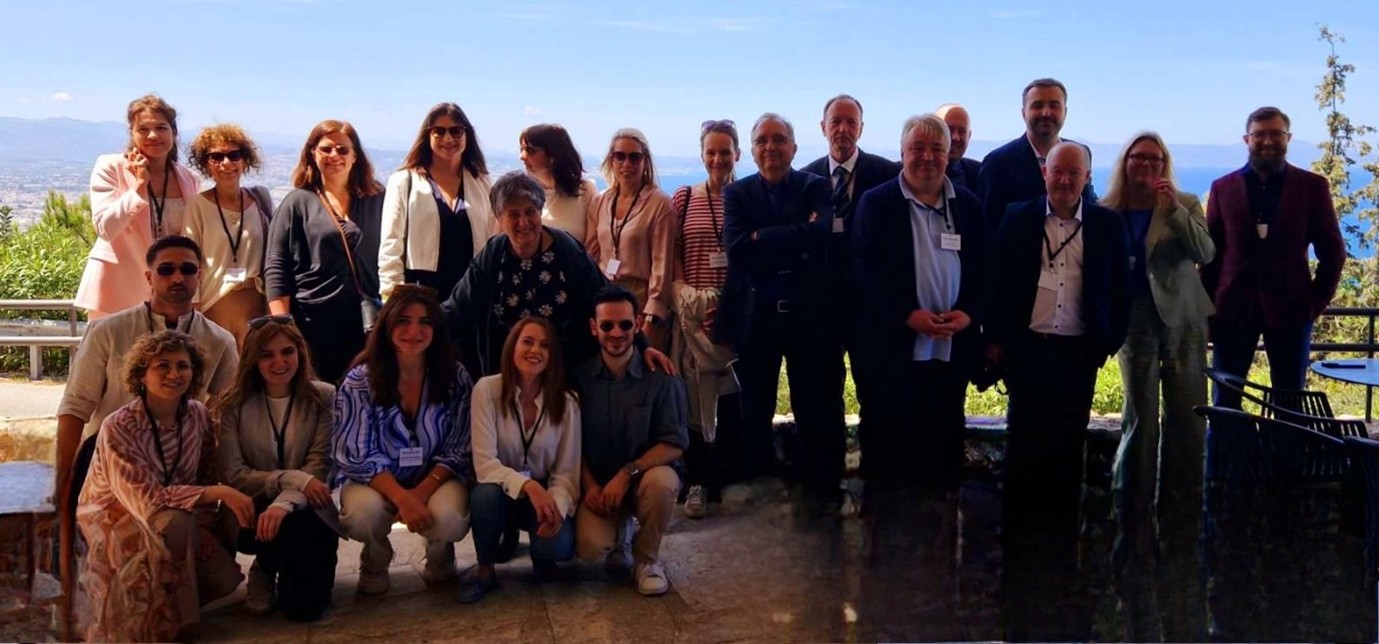HI-EURECA-PRO Kick-off in Chania, 11-12 April 2024
The HI-EURECA-PRO (Heritage Innovation in EURECA-PRO Alliance) Kick-off Meeting successfully took place in Chania, Crete (Greece) on the 11th and 12th April 2024.
The Project’s Consortium partners Hochschule Mittweida (HSMW), Montanuniversität Leoben (MUL), Politechnika Śląska (SUT), Technische Universität Bergakademie Freiberg (TU BAF), Universiteit Hasselt (UH), Universidad de León (ULE), Universitatea din Petroșani (UP), under the guidance of the project’s Coordinator Renewable & Sustainable Energy Laboratory of the Technical University of Crete (ReSEL@TUC) and with advice from the European Research Executive Agency (REA), are committed to a solid collaboration aimed at unlocking heritage-based innovation towards sustainable development in cultural, mining and industrial regions in Europe. By establishing a robust action plan, the partners look ahead for a highly impactful project that benefits the local heritage innovation ecosystems.
The meeting was greeted by Prof. Michael Zervakis, Rector of the Technical University of Crete, Prof. Evangelos Diamantopoulos and Prof. Michael Lagoudakis, former rectors of TUC, Prof. Konstantinos-Alketas Ouggrinis, Vice-rector of Research and Innovation at TUC, and Prof. Theocharis Tsoutsos, Director of ReSEL@TUC, who expressed their support for HI-EURECA-PRO at the highest level.
Stavroula Tournaki, Lead of the European Projects Team at ReSEL@TUC outlined the project’s goals, methodologies, expected outcomes, structure and funding. The results of a poll conducted at the beginning revealed that participants associate heritage with culture, history, and identity. She explained how each demo area mapped stakeholder engagement within the local ecosystem. This ecosystem includes academic, environmental, social, political, and economic sectors through the Quintuple Innovative Helix framework. The sustainable approach of the project, also analysed, encompasses environmental assessment, a heritage forum, gender equality, results transferability, and maximizing impact.
Prof. Evangelos Diamadopoulos from the Technical University of Crete (TUC) shared insights into the EURECA-PRO Alliance’s activities and its link to HI-EURECA-PRO. The discussion highlighted the background of the EURECA-PRO Alliance illustrating its ongoing efforts and achievements. A video of EURECA-PRO was shown, providing a visual overview of the alliance’s activities and outcomes. Prof. Evangelos Diamadopoulos, concluded his presentation by noting that the EURECA-PRO Alliance continues to make significant strides in fostering academic collaboration and innovation at the EU level. Through strategic partnerships and initiatives, it aims to create a dynamic and inclusive educational environment.
Aga Kosciuszko from MUL, pointed out the complementary nature of the RE-EURECA-PRO and HI-EURECA-PRO projects, which are both significant initiatives driven by the EURECA-PRO Alliance. Although both projects aim to enhance research and innovation, they possess distinct objectives and operational timelines. Aga Kosciuszko’s presentation effectively outlined the strategic alignment and collaborative opportunities between RE-EURECA-PRO and HI-EURECA-PRO, stressing the importance of building on established successes while fostering new partnerships and inclusive practices.
In the afternoon of the same day, the meeting’s sessions resumed, focusing on HI-EURECA-PRO demonstration sites. Prof. Szymon Ogonowski (SUT) presented the development and objectives of the Industrial Heritage Demo Site, highlighting the rich industrial heritage of the Silesia region, which has been undergoing a significant green and digital transformation over the past four decades. This transformation poses challenges for businesses and society, demanding research and education due to a shortage of specialists in the market. The demo aims to support and accelerate this transformation.
The presentation on the cultural heritage demo site in Crete, delivered by Prof. Theocharis Tsoutsos from ReSEL TUC, emphasized that Crete serves as a vibrant living lab for cultural heritage, offering insights applicable to similar Mediterranean regions. Prof. Theocharis Tsoutsos highlighted that the cultural heritage demo site in Crete represents a valuable opportunity to explore and implement best practices in cultural preservation and sustainability. Through a multidisciplinary approach and collaborative efforts, this initiative aims to serve as a model for similar projects in the Mediterranean region and beyond.
Dr. Sabin Ioan Irimie from UP presented the extensive mining history of Jiu Liu Valley and outlined the objectives and agenda for transitioning this heritage site towards sustainability and circularity. The initiative is a collaborative effort involving the local community, academia, and policymakers to foster innovation and sustainable development while preserving the region’s historical significance. The Mining Heritage Demo Site project in Jiu Liu Valley, Romania, aims to transform the region’s mining heritage into a model of sustainability and innovation. Through initiatives such as education, community engagement, and developing a digital museum, the project sets a precedent for integrating historical preservation with modern innovation.
On the event’s second day, the focus shifted to several work packages aimed at promoting sustainable heritage through research and innovation. Presentations were given by Prof. María Fernández Raga (ULE), Anneke Kenens and Lieve Weytjens (UH), Aga Kosciuszko (MUL), Prof. Dr. Gunter Süß (TU BAF), Stavroula Tournaki (TUC ReSEL), and Maria Frangou (ReSEL TUC). They outlined their objectives, proposed actions, and the collaboration required for success.
Beyond the formal agenda, partners had the chance to explore the heritage landmarks and the vibrant culture of Chania and enjoy the famous Cretan hospitality.
In conclusion, the HI-EURECA-PRO Kick-off Meeting not only established a clear direction for the project but also strengthened the Alliance’s dedication to fostering a vibrant and inclusive educational and research environment. With a shared vision and dedicated partnerships, the project is well-positioned to make a substantial contribution to heritage-based innovation, advancing the sustainable development of Europe’s cultural, mining, and industrial landscapes.


